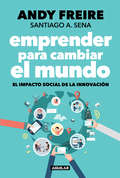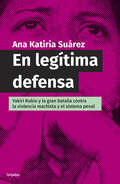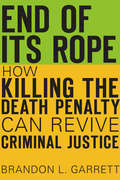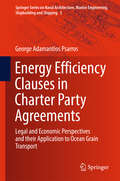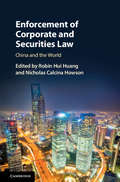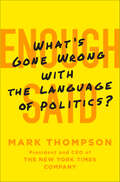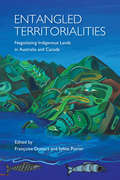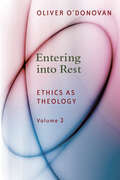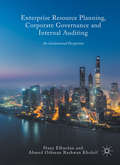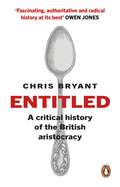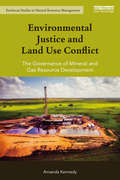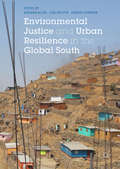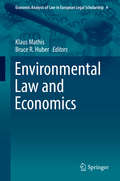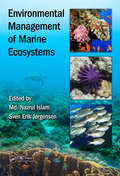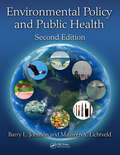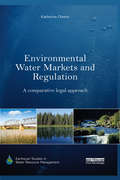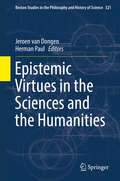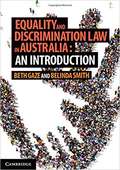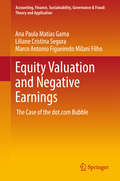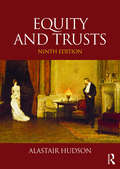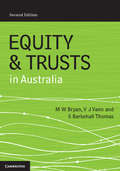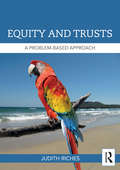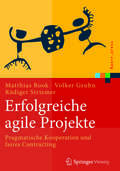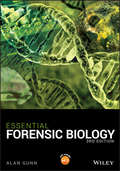- Table View
- List View
Emprender para cambiar el mundo: El impacto social de la innovación
by Andy Freire Santiago A. SenaAndy Freire con Santiago A. Sena nos presentan a los emprendedores sociales, quienes demuestran que el impacto social y la sostenibilidad económica no son lógicas contrapuestas, sino una alianza innovadora que cambia paradigmas en todo el mundo. Mientras el futuro aparece amenazante (la pérdida masiva de empleo por la automatización, el calentamiento global y las crisis humanitarias), estos emprendedores traen respuestas: generar un impacto social positivo y sustentable desde empresas que proveen bienes y servicios, tienen clientes, generan ganancias, son rentables y, al mismo tiempo, solucionan problemas sociales concretos. Su experiencia deja en claro que hay una nueva forma de encarar la vida laboral. El capitalismo puede ser salvaje, pero los emprendedores sociales se comprometen a domarlo y humanizarlo en beneficio de la sociedad.
En legítima defensa: Yakiri Rubio y la bran batalla contra la violencia machista y el sistema penal
by Ana Katiria Suárez CastroLa estremecedora historia de la joven y su larga lucha por obtener libertad y justicia. Una narración cruda e intensa de una mujer que se enfrentó a la violencia machista, a las instituciones patriarcales, a la corrupción del sistema penal... Y ganó. En diciembre de 2013, la joven Yakiri Rubio fue secuestrada por dos hombres que la condujeron a un hotel para violarla. Después de ultrajarla, uno de ellos intentó asesinarla. Ella acabó matando al agresor en defensa propia; sin embargo, la acusaron de homicidio calificado y la encarcelaron. La autora de este libro, Ana Katiria Suárez, es la abogada penalista que defendió a Yakiri Rubio. En una carrera contra el tiempo, después de haber tenido acceso a un expediente mutilado, su objetivo desde el primer momento fue demostrar que Yakiri actuó en legítima defensa tras haber sufrido una violación sexual. Con la pasión que caracterizó su defensa, la autora relata los pormenores de un proceso viciado desde el origen, repleto de omisiones, fallas y contubernios entre los delincuentes y la autoridad. Muy pronto, el caso se convirtió en una lucha personal por los derechos humanos y en una cruzada jurídica con perspectiva de género. Otros autores han opinado: "¡Qué sería de este país de machos donde campean la violencia, la misoginia y el odio, sin mujeres como Ana Katiria! ¡Qué sería de nosotros sin esas voces, como la suya, que no sólo claman justicia, sino que son capaces de arrancársela a un régimen que sistemáticamente nos la niega!" -Epigmenio Ibarra-
End of Its Rope: How Killing the Death Penalty Can Revive Criminal Justice
by Brandon L. GarrettToday, death sentences in the U.S. are as rare as lightning strikes. Brandon Garrett shows us the reasons why, and explains what the failed death penalty experiment teaches about the effect of inept lawyering, overzealous prosecution, race discrimination, wrongful convictions, and excessive punishments throughout the criminal justice system.
Energy Efficiency Clauses in Charter Party Agreements
by George Adamantios PsarrosThis book provides practical solutions for addressing energy efficiency as a clause term within a charter party contract. For this, upon a reflection of the regulatory craft, it analyzes key concepts of case law, and discusses them together with commercial and economic principles. In this way, the book aims at offering a comprehensive, interdisciplinary view of the chartering process, together with a new approach for safeguarding energy efficiency investments. A special emphasis is given to the maritime industry. Here, the newly developed framework, based on game theory, has been successfully applied to demonstrate the importance of including a clause term in contract negotiation to achieve protection against both an uncertain market and an even more challenging shipping environment. The book not only fills a gap in the literature, covering a topic that has been largely neglected to date, yet it offers researchers and practitioners extensive information to change the chartering process radically.
Enforcement of Corporate and Securities Law: China and the World
by Huang Robin Hui Howson Nicholas CalcinaThis book is the first of its kind in focusing on the enforcement of corporate and securities laws, both public and private, a relatively understudied but critically important issue for the development and health of global capital markets. The book has a special focus on the young system coming into being in the People's Republic of China (PRC), but also examines the enforcement of corporate and securities laws across the globe and across different legal and political systems from an in-depth comparative perspective. This single volume assembles a veritable 'dream team' of contributors who are amongst the very best scholars and legal specialists in the many national jurisdictions covered in the book. Hence, it is of significant value to corporate and securities regulators, judicial officials, prosecutors, litigation specialists, corporate counsel, legal and economic policymakers, scholars, think tanks, students, and investors alike.
Enough Said: What's Gone Wrong with the Language of Politics?
by Mark ThompsonThere’s a crisis of trust in politics across the western world. Public anger is rising and faith in conventional political leaders and parties is falling. Anti-politics, and the anti-politicians, have arrived. In Enough Said, President and CEO of The New York Times Company Mark Thompson argues that one of the most significant causes of the crisis is the way our public language has changed. Enough Said tells the story of how we got from the language of FDR and Churchill to that of Donald Trump. It forensically examines the public language we’ve been left with: compressed, immediate, sometimes brilliantly impactful, but robbed of most of its explanatory power. It studies the rhetoric of western leaders from Reagan and Thatcher to Berlesconi, Blair, and today’s political elites on both sides of the Atlantic. And it charts how a changing public language has interacted with real world events – Iraq, the financial crash, the UK's surprising Brexit from the EU, immigration – and led to a mutual breakdown of trust between politicians and journalists, to leave ordinary citizens suspicious, bitter, and increasingly unwilling to believe anybody. Drawing from classical as well as contemporary examples and ranging across politics, business, science, technology, and the arts, Enough Said is a smart and shrewd look at the erosion of language by an author uniquely placed to measure its consequences.
Entangled Territorialities: Negotiating Indigenous Lands in Australia and Canada
by Francoise Dussart Sylvie PoirierEntangled Territorialities offers vivid ethnographic examples of how Indigenous lands in Australia and Canada are tangled with governments, industries, and mainstream society. Most of the entangled lands to which Indigenous peoples are connected have been physically transformed and their ecological balance destroyed. Each chapter in this volume refers to specific circumstances in which Indigenous peoples have become intertwined with non-Aboriginal institutions and projects including the construction of hydroelectric dams and open mining pits. Long after the agents of resource extraction have abandoned these lands to their fate, Indigenous peoples will continue to claim ancestral ties and responsibilities that cannot be understood by agents of capitalism. The editors and contributors to this volume develop an anthropology of entanglement to further examine the larger debates about the vexed relationships between settlers and indigenous peoples over the meaning, knowledge, and management of traditionally-owned lands.
Entering into Rest: Ethics as Theology
by Oliver O'DonovanOliver O'Donovan's Ethics as Theology project began with Self, World, and Time, an "induction" into Christian ethics as ordered reflection on moral thinking within the life of faith. Volume 2, Finding and Seeking, shifted the focus to the movement of moral thought from a first consciousness of agency to the time that determines the moment of decision. In this third and final volume of his magnum opus, O'Donovan turns his attention to the forward horizon with which moral thinking must engage. Moral experience, he argues, is necessarily two-directional, looking both back at responsibility and forward at aims. The Pauline triad of theological virtues (faith, love, and hope) describes a form of responsibility, and its climax in the sovereignty of love opens the way to a definitive teleology.Entering into Rest offers O'Donovan's mature reflections on questions that have engaged him throughout his career and provides a synoptic view of many of his main themes.
Enterprise Resource Planning, Corporate Governance and Internal Auditing
by Hany Elbardan Ahmed Othman Rashwan KholeifThis book investigates how corporate governance is directing the internal audit function (IAF) adaptation as a response to enterprise resource planning (ERP) systems. To date, there is insufficient knowledge about the adaptations of the IAF, which are required if it is to maintain its essential role as a governance mechanism. This book extends the reader's knowledge by exploring and theorising the adaptation of the IAF after ERP introduction and points towards future trends. Adopting an institutional approach, it analyses how the IAF responds to the external governance pressures and the internal pressures of the control logic following the introduction of an ERP system. Featuring data from two listed companies in the food and beverage sector and two large banks operating in Egypt, this volume will be of interest to researchers and academics in the field of financing and ERP systems in particular.
Entitled: A Critical History of the British Aristocracy
by Chris Bryant"A proudly partisan history of the British aristocracy - which scores some shrewd hits against the upper class themselves, and the nostalgia of the rest of us for their less endearing eccentricities. A great antidote to Downton Abbey." (Mary Beard)Exploring the extraordinary social and political dominance enjoyed by the British aristocracy over the centuries, Entitled seeks to explain how a tiny number of noble families rose to such a position in the first place. It reveals the often nefarious means they have employed to maintain their wealth, power and prestige and examines the greed, ambition, jealousy and rivalry which drove aristocratic families to guard their interests with such determination. In telling their history, Entitled introduces a cast of extraordinary characters: fierce warriors, rakish dandies, political dilettantes, charming eccentrics, arrogant snobs and criminals who quite literally got away with murder.
Environmental Justice and Land Use Conflict: The governance of mineral and gas resource development (Earthscan Studies in Natural Resource Management)
by Amanda KennedyConflict over the extraction of coal and gas resources has rapidly escalated in communities throughout the world. Using an environmental justice lens, this multidisciplinary book explores cases of land use conflict through the lived experiences of communities grappling with such disputes. Drawing on theories of justice and fairness in environmental decision making, it demonstrates how such land use conflicts concerning resource use can become entrenched social problems, resistant to policy and legal intervention. The author presents three case studies from New South Wales in Australia and Pennsylvania in the US of conflict concerning coal, coal gas and shale gas development. It shows how conflict has escalated in each case, exploring access to justice in land use decision making processes from the perspective of the communities at the heart of these disputes. Weaknesses in contemporary policy and regulatory frameworks, including ineffective opportunities for public participation and a lack of community recognition in land use decision making processes, are explored. The book concludes with an examination of possible procedural and institutional reforms to improve access to environmental justice and better manage cases of land use conflict. Overall, the volume links the philosophies of environmental justice with rich case study findings, offering readers further insight into both the theory and practice of land use decision making.
Environmental Justice and Urban Resilience in the Global South
by Adriana Allen Liza Griffin Cassidy JohnsonThis edited volume provides a fresh perspective on the important yet often neglected relationship between environmental justice and urban resilience. Many scholars have argued that resilient cities are more just cities. But what if the process of increasing the resilience of the city as a whole happens at the expense of the rights of certain groups? If urban resilience focuses on the degree to which cities are able to reorganise in creative ways and adapt to shocks, do pervasive inequalities in access to environmental services have an effect on this ability? This book brings together an interdisciplinary and intergeneration group of scholars to examine the contradictions and tensions that develop as they play out in cities of the Global South through a series of empirically grounded case studies spanning cities of Asia, Latin America, Africa and Eastern Europe.
Environmental Law and Economics
by Klaus Mathis Bruce R. HuberThis anthology discusses important issues surrounding environmental law and economics and provides an in-depth analysis of its use in legislation, regulation and legal adjudication from a neoclassical and behavioural law and economics perspective. Environmental issues raise a vast range of legal questions: to what extent is it justifiable to rely on markets and continued technological innovation, especially as it relates to present exploitation of scarce resources? Or is it necessary for the state to intervene? Regulatory instruments are available to create and maintain a more sustainable society: command and control regulations, restraints, Pigovian taxes, emission certificates, nudging policies, etc. If regulation in a certain legal field is necessary, which policies and methods will most effectively spur sustainable consumption and production in order to protect the environment while mitigating any potential negative impact on economic development? Since the related problems are often caused by scarcity of resources, economic analysis of law can offer remarkable insights for their resolution. Part I underlines the foundations of environmental law and economics. Part II analyses the effectiveness of economic instruments and regulations in environmental law. Part III is dedicated to the problems of climate change. Finally, Part IV focuses on tort and criminal law. The twenty-one chapters in this volume deliver insights into the multifaceted debate surrounding the use of economic instruments in environmental regulation in Europe.
Environmental Management of Marine Ecosystems (Applied Ecology and Environmental Management)
by Md. Nazrul Islam and Sven Erik JørgensenEcosystem-Based Management (EBM) is one of the most holistic approaches to protecting marine and coastal ecosystems as it recognizes the need to protect entire marine ecosystems instead of individual species. After decades of pollution, habitat degradation and overfishing, now climate change and ocean acidification threaten the health of the ocean in unprecedented way. Environmental Management of Marine Ecosystems illustrates the current status, trends, and effects of climate, natural disturbances and anthropogenic impacts on marine ecosystems. It demonstrates how to integrate different management tools and models in an up-to-date, multidisciplinary approach to environmental management. This indispensable guide provides several case studies from around the world and creates a framework for identifying management tools and their applications in coral reefs, fisheries, migratory species, marine islands and associated ecosystems such as mangroves and sea grass beds. It discusses the physical and chemical compositions of marine ecosystems along with the threats and actions needed to protect them. The application of model framework to several contemporary management issues include the modelling of harmful algal bloom dynamics, understanding the dispersal of sea lice, and the possible impacts on intertidal communities of the provision of novel offshore habitat. The results of extensive research by an international team of contributors, the Environmental Management of Marine Ecosystems is designed to inform scientists, practitioners, academics, government and non-government policymakers on the particularities of marine ecosystems and assist them in understanding the EBM approaches in means of mitigation and adaptation of human activities that result in sustainability. These practices will help change the current methodologies used for resource assessment and the future regulations of marine resources.
Environmental Policy and Public Health
by Barry L. Johnson Maureen Y. LichtveldAs with the first edition, this second edition describes how environmental health policies are developed, the statutes and other policies that have evolved to address public health concerns associated with specific environmental hazards, and the public health foundations of the policies. It lays out policies for what is considered the major environmental physical hazards to human health. Specifically, the authors describe hazards from air, water, food, hazardous substances, and wastes. To this list the authors have added the additional concerns from climate change, tobacco products, genetically-modified organisms, environment-related diseases, energy production, biodiversity and species endangerment, and the built environment. And as with the first edition, histories of policymaking for specific environmental hazards are portrayed. This edition differs from its antecedent in three significant themes. Global perspectives are added to chapters that describe specific environmental hazards, e.g., air pollution policies in China and India. Also there is the material on the consequences of environmental hazards on both human and ecosystem health. Additionally readers are provided with information about interventions that policymakers and individuals can consider in mitigating or preventing specific environmental hazards.
Environmental Water Markets and Regulation: A comparative legal approach (Earthscan Studies in Water Resource Management)
by Katherine OwensRiver systems around the world are degraded and are being used unsustainably. Meeting this challenge requires the development of flexible regimes that have the potential to meet essential consumptive needs while restoring environmental flows. This book focuses on how water trading frameworks can be repurposed for environmental water recovery and aims to conceptualise the most appropriate role for law in supporting recovery through these frameworks. The author presents a comprehensive study of the legal frameworks in four jurisdictions: the States of Oregon and Colorado in the western United States; the province of Alberta in Canada; and the Murray-Darling Basin in Australia/Basin State of New South Wales. A close comparative analysis of these four jurisdictions reveals a variety of distinctive regulatory arrangements and collaborations between public and private actors. In all cases, the law has been deployed to steer and coordinate these water governance activities. The book argues that each regime is based on a particular regulatory strategy, with different conceptions of the appropriate roles for, and relationships between, various actors and institutions. Legal frameworks do not have the capacity to rationalise and provide an overarching and absolute solution to the complex environmental and governance issues that arise in the context of environmental water transactions. Rather, the role of law in this context needs to be reconceptualised within the paradigm of regulatory capitalism as establishing and maintaining the limits within which regulatory participants can operate, innovate and collaborate.
Epistemic Virtues in the Sciences and the Humanities
by Jeroen Van Dongen Herman PaulThis book explores how physicists, astronomers, chemists, and historians in the late nineteenth and early twentieth centuries employed 'epistemic virtues' such as accuracy, objectivity, and intellectual courage. In doing so, it takes the first step in providing an integrated history of the sciences and humanities. It assists in addressing such questions as: What kind of perspective would enable us to compare organic chemists in their labs with paleographers in the Vatican Archives, or anthropologists on a field trip with mathematicians poring over their formulas? While the concept of epistemic virtues has previously been discussed, primarily in the contexts of the history and philosophy of science, this volume is the first to enlist the concept in bridging the gap between the histories of the sciences and the humanities. Chapters research whether epistemic virtues can serve as a tool to transcend the institutional disciplinary boundaries and thus help to attain a 'post-disciplinary' historiography of modern knowledge. Readers will gain a contextualization of epistemic virtues in time and space as the book shows that scholars themselves often spoke in terms of virtue and vice about their tasks and accomplishments. This collection of essays opens up new perspectives on questions, discourses, and practices shared across the disciplines, even at a time when the neo-Kantian distinction between sciences and humanities enjoyed its greatest authority. Scholars including historians of science and of the humanities, intellectual historians, virtue epistemologists, and philosophers of science will all find this book of particular interest and value.
Equality and Discrimination Law in Australia: An Introduction
by Beth Gaze Belinda SmithEquality and Discrimination Law in Australia: An Introduction explores four decades of anti-discrimination laws in Australia. Beth Gaze and Belinda Smith argue that effective laws protecting against and deterring discrimination are vital for a fair future, and emphasise the theoretical and social contexts that underpin this area of the law. The text is divided into three sections: the first addresses the social and conceptual context, history and framework of anti-discrimination laws; the second analyses the main elements of the law and the processes of enforcement; and the third explores broader avenues for pursuing equality beyond simply prohibiting discrimination. Written in a clear and concise style, Equality and Discrimination Law in Australia: An Introduction is a vital resource for students.
Equity Valuation and Negative Earnings
by Ana Paula Matias Gama Liliane Cristina Segura Marco Antonio Figueiredo Milani FilhoBuilding upon Feltham and Ohlson models, this book examines positive loss-earnings within the context of the dot. com bubble during the boom years of the late 1990s bull market. The strong demand for equity financing captured the imagination of investors from Europe and U. S. like never before. With a focus on U. S. Internet companies, the book explores both the birth and the death of the new economy, and how negative earnings and losses still garnered large investments and successful IPOs (Initial Public Offerings). As Internet based ventures and the digital economy keep attracting large amounts of equity financing, this book explains that there is something unique in the valuation and pricing of tech companies. The book was written for corporate financiers, capital market professionals, and academics to further their understanding of equity valuation and the effects of equity trading.
Equity and Trusts
by Alastair HudsonAlastair Hudson’s Equity and Trusts is an ideal textbook for undergraduate courses on the law of trusts and equitable remedies. It provides a clear, current and comprehensive account of the subject. The author’s enthusiasm and expertise shine through, helping to bring to life an area of the law which students often find challenging. This Ninth Edition has been extensively re-written but remains the same book in spirit as it has always been. It contains an analysis of the important decisions of the Supreme Court in FHR European Ventures v Cedar Capital, Jones v Kernott, and Williams v Central Bank of Nigeria, and the important decisions in Charity Commission v Framjee, Rawstron v Freud, Patel v Mirza, Federal Republic of Brazil v Durant, Hodkin, Novoship v Mihaylyuk, National Crime Agency v Robb, St Andrews (Cheam) Lawn Tennis Club, the after-effects of the Lehman Brothers collapse; and analysis of many other new cases besides. Equity and Trusts remains the most comprehensive and up-to-date coverage of the law of Equity and Trusts, while still a lively and thoughtful account of the issues raised by it. This book has been cited as being authoritative in the courts of numerous countries. The ninth edition is supported by the author's website at www.alastairhudson.com with brand new resources including: • short podcasts discussing and clarifying key topics from within the book, which cover an entire course; • complete lecture recordings made specifically to accompany this book; • New video documentaries bringing to life selected key topics; • A host of other online materials and study guides new for 2016. Review of a previous edition: ‘One of the book’s great strengths is its clear exposition of some very difficult areas of the law, moving seamlessly from points that puzzle students to points that puzzle practitioners. Other strengths are the breadth of its approach, the fact that it is extremely up to date, the freshness and vividness of its approach and its willingness to place equity in a wider context .?.?. The student will enjoy a clear, lively and challenging account of the subject matter. The practitioner will find the book well worth consulting for its clear exposition of the basic principles and of their application in difficult areas.’ – New Law Journal.
Equity and Trusts in Australia
by Thomas Bryan M W Vann V J S BarkehallIncorporating recent case law developments, the second edition of Equity and Trusts in Australia provides undergraduate and Juris Doctor students with a current and accessible introduction to Australian equitable and trust law. Expanding upon first edition content, the text includes greater depth of topic discussion, explanation of key theories and terminology, while demonstrating how these are applied in practice. Chapters including Fiduciary Obligations, Resulting Trusts and Constructive Trusts have been reworked to strengthen the text's coverage of all facets of equity and trusts law. Equity and Trusts in Australia, second edition links key doctrines to their wider relationship with the law, making it a fundamental text for students embarking on this area of study for the first time.
Equity and Trusts: A Problem-Based Approach (Problem Based Learning)
by Judith RichesEquity and Trusts: A Problem-Based Approach creates a fresh approach to learning through the use of integrated realistic case studies designed to simulate how the law works in practice. With comprehensive coverage of the complete equity and trusts curriculum, unlike other textbooks, it integrates a thorough exposition of the legal rules with applied problem-solving opportunities, highlighting the legal issues and providing essential context for the law. The book’s goal is to familiarise students with a more active and practical approach to equity and trusts that will deepen their knowledge and understanding. Written in a clear and concise style but without sacrificing detail or analysis, Judith Riches not only provides students with a full and wide-ranging account of the law, but also helps them to develop the analytical and problem-solving skills they will need to succeed in their studies and beyond. Key features include: Case studies at the start of each chapter provide real-world context to each topic and help to familiarise readers with the legal language and style they will encounter Apply Your Learning boxes invite students to reflect and consolidate on the content covered in order to apply the law back to the case study Consider This boxes present variations to the case studies and alternative scenarios to challenge students to take their application of the law to the next level Key Cases and Statutes boxes reinforce the essential role of cases and legislation in the development and application of land law and help students identify key sources of legal authority for revision purposes Tutor Tips highlight important issues and opportunities to impress tutors and examiners without interrupting the flow of the text
Erfolgreiche agile Projekte: Pragmatische Kooperation und faires Contracting (Xpert.press)
by Matthias Book Volker Gruhn Rüdiger StriemerDas Buch beschreibt pragmatische Instrumente und Methoden, die Software-Entwicklern und Fachexperten dabei helfen, ein gemeinsames Problem- und L#65533;sungsverst#65533;ndnis zu entwickeln und Projekte so zu managen, dass Risiken fair zwischen Auftraggeber und Auftragnehmer verteilt werden. Teil 1 beleuchtet kurz die agile Entwicklungspraxis im kommerziellen Umfeld. Teil 2 beschreibt den Interaction Room, in dem Entwickler und Fachexperten auf gleicher Augenh#65533;he zusammenarbeiten. Teil 3 beschreibt das Preis- und Vertragsmodell adVANTAGE, das die Br#65533;cke zwischen agiler Philosophie und vertraglich fixierten Leistungserwartungen schl#65533;gt. Teil 4 illustriert die Methoden am Beispiel einer industriellen Fallstudie, bevor Teil 5 ein modernes Qualifikationsprofil aufstellt. Das Buch wendet sich an CIOs, Projektmanager und Entwickler, die Risiken in ihren Projekten fr#65533;her erkennen, souver#65533;ner mit der Ungewissheit komplexer Projekte umgehen und effektiver mit Kunden bzw. Dienstleistern kooperieren wollen.
Eros and Illness
by David B. MorrisWhen we or our loved ones fall ill, our world is thrown into disarray, our routines are interrupted, our beliefs shaken. David Morris offers an unconventional, deeply human exploration of what it means to live with, and live through, disease. He shows how desire—emotions, dreams, stories, romance, even eroticism—plays a crucial part in illness.
Essential Forensic Biology: Animals, Plants And Microorganisms In Legal Investigation
by Alan GunnA completely revised and updated edition that teaches the essentials of forensic biology, with increased coverage of molecular biological techniques and new information on wildlife forensics, wound analysis and the potential of microbiomes as forensic indicators This fully revised and updated introduction to forensic biology carefully guides the reader through the science of biology in legal investigations. Full-colour throughout, including many new images, it offers an accessible overview to the essentials of the subject, providing balanced coverage of the range of organisms used as evidence in forensic investigations, such as invertebrates, vertebrates, plants and microbes. The book provides an accessible overview of the decay process and discusses the role of forensic indicators like human fluids and tissues, including bloodstain pattern analysis, hair, teeth, bones and wounds. It also examines the study of forensic biology in cases of suspicious death. This third edition of Essential Forensic Biology expands its coverage of molecular techniques throughout, offering additional material on bioterrorism and wildlife forensics. The new chapter titled ‘Wildlife Forensics’ looks at welfare legislation, CITES and the use of forensic techniques to investigate criminal activity such as wildlife trafficking and dog fighting. The use of DNA and RNA for the identification of individuals and their personal characteristics is now covered as well, along with a discussion of the ethical issues associated with the maintenance of DNA databases. Fully revised and updated third edition of the successful student-friendly introduction to the essentials of Forensic Biology Covers a wide variety of legal investigations such as homicide, suspicious death, neglect, real and fraudulent claims for the sale of goods unfit for purpose, the illegal trade in protected species of plants and animals and bioterrorism Discusses the use of a wide variety of biological material for forensic evidence Supported by a website that includes numerous photographs, interactive MCQs, self-assessment quizzes and a series of questions and topics for further study to enhance student understanding Includes a range of important, key case studies in which the difficulties of evaluating biological evidence are highlighted Essential Forensic Biology, Third Edition is an excellent guide for undergraduates studying forensic science and forensic biology.
